
I’m Looking for 27 People to “Bend” Time

- Kairos | It’s Not “Travel Time Is Kairos Time” but “Travel Time Can Be Kairos Time”
- I’m Looking for 27 People to “Bend” Time
- ChatGPT vs. Claude Smackdown! I Asked about “Kairos”
- Continuing the Conversation with ChatGPT: Energy, Trajectory, and Frequency
- We are ALL a “Mathemagician” (The MATHematician + The MAGICian)
Listen in. This is going to be fun.
[ https://youtu.be/unC1pn3sIR0 ]
💬 Show Notes In this episode, Bradley and Susan sit on a picturesque canal bench in Utrecht to discuss Bradley’s upcoming project, which revolves around the intriguing concepts of Kairos and Chronos time. They explore how these ancient Greek notions of time can be applied to modern life, meditation, and business. Bradley outlines his vision for a comprehensive project involving 27 people, each contributing to a broader understanding of time, energy, trajectory, and frequency. They also delve into the practical applications of these ideas, including potential books, podcasts, and even a unique card deck. Chapters: (00:00) Bradley and Susan are podcasting from Utrecht, Netherlands (00:31) Kairos and Chronos are greek words related to time (04:30) I work with neurodivergent, intuitive people who run businesses (08:54) Should you access Kairos when you’re stuck in a thought process (09:52) You just said that you got people coming into your call at different frequencies (11:07) I’m looking for 27 people to talk about, 27 related topics (15:43) I want to say a little bit more about the business end of things These quotes from your episode were generated by Headliner AI. If you enjoy them please tell other podcasters by giving a shoutout to https://headliner.app in your episode ✨

Bradley and Susan are podcasting from Utrecht, Netherlands
Bradley Charbonneau: Hi, Susan.
Susan: Hey, Bradley. Here we are.
Bradley Charbonneau: So, this is a podcast. No video here. You know, we’ll take a picture. But we are in a gorgeous center of Utrecht, sitting on a canal on a bench.
Susan: Our favorite places.
Bradley Charbonneau: Glorious September day, blue sky, white puffy clouds. What more could we want? Well, maybe that apartment.
Susan: Right.
Kairos and Chronos are greek words related to time
Bradley Charbonneau: So, we’re here today. You are going to drill me. I mean, question me about my upcoming project, because it’s a biggie. And I’ve got it kind of clear in my own head that’s usually, early in the morning. So I want to get it clear with you and to talk about, how, you potentially could be involved and other people listening could be involved, either as participants of this group of 27 people.
Susan: Yeah.
Bradley Charbonneau: Or in some other. Some other capacity. Yeah.
Susan: Yeah. Okay, so tell me more about the idea.
Bradley Charbonneau: Okay, so this, Actually, I don’t know if I told you this, but this whole. The whole idea came from the one word book in person workshop.
Susan: Oh, awesome.
Bradley Charbonneau: where I started out the morning, I took everybody outside. I said, all right, away from the computers, we’re going outside. And I explained the difference between kairos time and kronos time.
Susan: Okay.
Bradley Charbonneau: And I said, dear people, today we are going to have some Kairos time, meaning we are going to have some. So Kairos is greek. Both kairos and Chronos are greek words, and they both have something to do with time. Chronos is the easier one to understand. It’s the normal time. It’s 1 second, two second, 3 seconds. Like a clock. Like days, months, whatever. That’s all Kronos regular time. Tick tock, tick tock.
Susan: Okay.
Bradley Charbonneau: Kairos time is, I like to call it sort of bending time or warping time. You know, we think as time is 1 second. Is 1 second. Well, is it right? Depends on what deep end we jump off of to understand time. But if you think about it, often, unfortunately, but often, there’s really traumatic times, events in our lives. Like for us Americans, it could be 911. So, for example, what happens is in this traumatic event, your mind sort of, your time slows down and you can remember detail. Like, I can remember I lived in San Francisco on Sutter street. It was morning. I was waking up, getting going on the day. And I remember we had this crappy tv on, like a cardboard box. We were literally just getting started. So I can imagine. I remember all those details of what was it, like, 20 plus years ago? Right?
Susan: Yeah.
Bradley Charbonneau: So that’s an example of Cairo’s time. Wherever your mind slows down, you can gather more information, you can get more done in a weird way. And that was a negative example. There are also positive examples, of course, the birth of a baby or, certain events, or you’re on the top of Mount Kilimanjaro, whatever. So positive times can also be Kairos times. For me. What I like about Kairos is that you can create Kairos times. For me, my favorite example is favorite practice is meditation. So for me, if I meditate 20 minutes in the morning, I like to say it’s like a ten x a ten times the power and content. So I can have 20 minutes in the morning, and that’s like 200 minutes of, regular m Kronos time work. So the main goal is kind of, I joke about the 25th hour. Not joke. Why should I joke the 25th hour of the day? And I kind of say I have the 25th hour in the day and I know how to get it.
Susan: Okay.
Bradley Charbonneau: So that’s kind of my salesy hookah line, there. If I could give you another hour in the day, would you like that? Right. And then just one more comment. Kronos and Kairos in the past week. Since you and I spoke last week, Susan.
I work with neurodivergent, intuitive people who run businesses
Yeah. I came back to sort of an old favorite of mine, which is the mathematician and the magician. So, clear connection there. Mathematician being Kronos and magician being Kairos. Mathematician is, you know, one plus one is two. Kairos is more, or, more magician is one plus one. Could be greater than two or three. Right. So that’s kind of the overall big picture. Right. and that’s the plan. And as you know, recently, it was really just a book idea. I think it could be and should be. And also, based on your input today, should really should be more than, quote, unquote, just a book.
Susan: Yeah, I like the idea because, what I see a lot, is I’m, you know, I work with neurodivergent, intuitive, spiritual type of people who are running businesses. And what I, you know, what I am intrigued by is the concept of time. Who created it? You know, we all agree upon it. Right?
Bradley Charbonneau: Yeah.
Susan: But there are those times, whether it’s a meditation, a visualization, or, you know, just your imagination.
Bradley Charbonneau: Yeah.
Susan: You know, you go to different places or dreams or. Well, definitely when you’re dreaming.
Bradley Charbonneau: Right.
Susan: But, you know, but in the waking hours, and dreaming is good. It has its space, and it does help us do so much. But in the waking hours, like you said, when we do meditation, it’s like, even with five minutes, you come out and feel like an hour hitting that, if you’re really. So meditation sometimes is a little difficult for people to do, because they think they have to achieve no thought.
Bradley Charbonneau: Right.
Susan: I find with my group in particular, taking them on a visualization, and then it activates their imagination, which gives them information, and it brings them some sort of clarity.
Bradley Charbonneau: So you’re even helping other people sort of manipulate time. You’re increasing their time in a group setting.
Susan: Yes.
Bradley Charbonneau: That’s kind of cool.
Susan: We always start our sessions with a guided meditation because. And we did an interview not too long ago at a different canal in the Netherlands about Reiki.
Bradley Charbonneau: That’s right. Yeah.
Susan: And I have noticed when people come on a zoom, call, like they’ve just come off a conversation with their husband or their kids trying to go to bed, and you come in with that energy of, I’m here. I had to make it on time. Right.
Bradley Charbonneau: Yeah, yeah.
Susan: And then they bring all that into the space. And the best way to clear the space is to get everybody on the same frequency. I know. I like that word. So I’m gonna explain a little bit. What we do is, I just take them through a grounding type of meditation. They have to visualize the grounding. So usually it’s through their feet and have them grow roots from their feet into the ground. And because they’re actively doing something with neurodivergence, we need to have something to do or have, like, a prompt. and that really comes back with a lot of information. it helps.
Bradley Charbonneau: I like the prompt.
Susan: Yeah.
Bradley Charbonneau: Because you’re right. I have the same. If. If I just listen to soft music or something.
Susan: Yeah.
Bradley Charbonneau: I’m just gonna fly off onto Albert hine checklist, which is super Kronos.
Susan: Yeah.
Bradley Charbonneau: And I don’t want chronos in my meditation. I can get that in my regular waking hours. I want Kairos.
Susan: Right. And so sometimes the visualization activating your third eye, your imagination in this way. And so, they’ll come back into the space, and it’s a totally different energy setting. Now I’m ready to take in what’s next. Cause I’m in this space.
Bradley Charbonneau: Nice.
Susan: And I’m here for this purpose. And it really brings everybody into the present moment. But they’re already, like, one client, one time fell asleep, and then she came back. She had all this energy.
Bradley Charbonneau: Oh, that’s cool.
Susan: Okay.
Bradley Charbonneau: But, you know, hey, you unzoom poking the screen. You. You wake up.
Susan: Okay. And we’re back.
Should you access Kairos when you’re stuck in a thought process
And we’re back. but then, like, sometimes I’ll do a visualization, like connecting with your business energy and things like that. And then they get like information about what they could not see before. Because if you’re stuck in a thought process about, for instance, a business.
Bradley Charbonneau: Yeah, I. Only a kid or a spouse, anything. Yeah.
Susan: And you think you should, if you have the word should in anything, that’s when you should access. Should access Kairos. Because, Kairos time for me is like a place of learning something different. Like getting out of the, Maybe the kronos. Yeah. The day to day grind kind of thought process. I think we’re talking about a couple of different things.
Bradley Charbonneau: Yes.
Susan: But it’s exciting because I know that’s the way people are exploring time. As I said to you before, time is an illusion.
Bradley Charbonneau: Yeah.
Susan: We won’t go too deep on that. But I love this idea.
You just said that you got people coming into your call at different frequencies
And so I want to hear more about how you want to shape it.
Bradley Charbonneau: So you just said something. So I think what we’re doing right now is exactly the path. I think this is step one in this 27 step process. I’ll explain the 27 steps in a minute, but exactly what we’re doing, it brings. I’m so visual. Right. And so you just mentioned in word audio here, you just said that you got people coming into your call. And this guy has talked with his spouse. And that one, she just was dealing with her kid. And they’re at different, how I see it, different frequencies or vibrations or resonance, and they come in and they’re all over the place. And I always talk about the old fashioned radio dial. And so that guy’s at 89.5 and she’s at 93.7. And you want them all at, 89.1.
Susan: Okay.
Bradley Charbonneau: And so you’re gonna open this up. You’re gonna open up the call and bring everybody into that same frequency. And I think, and I think this could, definitely be a, chapter of the book or an idea of the book of this. Bringing the, How could you say that? Like, bringing everybody into the same frequency and just think of the power of that.
Susan: Yeah.
Bradley Charbonneau: And I really.
I’m looking for 27 people to talk about, 27 related topics
So, so you’re asking what I want to do with this? What I want to do with this is I want to. I am looking for 27 people to talk about, 27 related but different topics under the bigger idea of kairos and kronos and time. And then again, visual guy that I am and downloading messages guy that I am. I have, ah, seen or I’ve downloaded this clear structure which brings this into these three. I’m going to call them books, but they don’t have to be books, but these three bigger ideas, under Kairos and Kronos of energy, trajectory and frequency. So, you know, we’ve already, without mentioning those exact words, except for frequency we talked about. You did see frequency, but the other two, we said them without saying those words.
Susan: Right.
Bradley Charbonneau: And so just a yemenite and I. How I see it, I go very much in threes. One is Kairos, three is energy, trajectory, frequency. And then each one of those three has three subsections. Here’s where it goes crazy. But under those three are three more sort of action items or totems or, items. Chapters, really. I’m such a book guy. I think in like, here’s how I see it in book. I see the series name is Kairos. The book are the three energy, trajectory, frequency. Those are three book titles. Then there are three sections per book, and then there’s three chapters per section. So what happened is we just went from one to three to nine to 27. So that’s why we have 27 chapters of the book. And that’s why I want to have a chat with 27 people about. Yeah. I. On the 27 different elements of this bigger idea.
Susan: That’s cool. I think, like, it would be fascinating how we could each take that subject because I feel like it’s very much crossover. I could do it all day.
Bradley Charbonneau: Yeah.
Susan: Like getting everybody on the same frequency. You could call it vibration.
Bradley Charbonneau: Right.
Susan: I’m harmonizing the energy. Harmonize so that we can all be in the same frequency. Vibration, energy.
Bradley Charbonneau: Yeah.
Susan: Let people call it energy. You can see how this crosses over.
Bradley Charbonneau: Yeah.
Susan: What, I’m doing in that ten minutes is setting a space that we all can be together and synchronized. there still might be a tape running in the background, but they’re a little bit more focused in.
Bradley Charbonneau: Yeah, yeah, yeah.
Susan: And then just like us, right, we have people walking by and everything. You can probably hear it, but we’re here focused in just on this topic.
Bradley Charbonneau: Yeah, yeah.
Susan: And that means, I mean, I have an expansive, sensitive mind that pulls in all of the stimulus. And so that’s why I do that with my group, because we’re all attention deficit disorder and all kinds of neurodivergencies and we’re thinking all the time and we have big ideas all the time. Today we’re just going to focus in on this. But the best way to do that is to ground together in that space. And I think with all of the technology and Internet stuff and noise, sometimes it’s really hard for us to do.
Bradley Charbonneau: Yeah.
Susan: But you’re slowing down time to be in one space together. That’s how it feels.
Bradley Charbonneau: So here’s a perfect, like, kind of meta example of, to answer your question, for the 27 ideas, by the way, the 27 ideas, I don’t have them all clearly in front of me. I have the one and the three, and I kind of have the nine, but the 27 I’m not sure of. And I want to discover them as we go along. For example, an idea you just brought in. I mean, you brought in several, but one of them I really like is the idea of the group sort of creating, a common frequency for a common goal.
Susan: Right.
Bradley Charbonneau: I think that’s really cool.
Susan: Yeah. And since we’re talking about Kairos time, I mean, we use Kronos to meet and schedule.
Bradley Charbonneau: That’s good.
Susan: And so we’re still playing with both.
Bradley Charbonneau: Yeah. We’re meeting at 03:00.
Susan: Yeah, yeah.
Bradley Charbonneau: We’re meeting for an hour.
Susan: We’re gonna drop into the space.
Bradley Charbonneau: Yeah.
Susan: So it’s interesting what you’re doing, and I’d like to talk more about it or be a part of it, whatever, happens.
I want to say a little bit more about the business end of things
Bradley Charbonneau: I want to say a little bit more about the business end of things, because we were talking earlier about, I, mean, just to put it bluntly, money and revenue and stuff. And why. Is this all for fun? Or is. Is this like a business idea or what?
Susan: Yeah. How do you see this?
Bradley Charbonneau: Yeah, so I see it, as a much bigger. I mean, also thanks to talking with you, much bigger idea than just books. I’m a writer in my heart, but I like creating bigger things. And as you said, I like having interviews. I like connecting with people. And I think, and this is a perfect example of Kairos just here on our little conversation on the bench here in Utrecht, we’ve already come up with. I mean, I can think of at least three potential chapter ideas.
Susan: Yeah, me too.
Bradley Charbonneau: And one for you. And maybe it’ll change. But I like this, finding the common frequency. So super cool.
Susan: Yeah.
Bradley Charbonneau: So the idea is to have a chat with more than 27 people, to find the 27 who are going to fit in this, bigger umbrella of ideas. And then I see books, for sure, just because sometimes a book guy. But then the interviews are going to be either it’s just the interview and it’s the. It’s a podcast or it’s a YouTube, or it’s something behind a paywall, and that these, these conversations are the bonus item or the upgrade item or whatever. And then you get the videos. I also could really see 27 cheat sheets or 27, you ever heard of pip decks? P I p. Oh, yeah. Like, it’s like a card deck, right? So I would love to have a card deck, like tarot cards, but this is a 27 cards and everybody’s gonna have their own card. So maybe another upgrade item would be the deck of 27, right. You have this beautiful image on the one side, and the other side is, I don’t know, the main elements or to do items or whatever that may be. That’s the kind, kind of stuff I want to build out. one more thing on this. I’m a techie guy, so I kind of geek out on this kind of stuff. But, so for example, and just if you’re listening, you’re thinking like, what’s, what is it, wiifm m or something? What’s in it for me? And I think, so techie guy that I am, m, if you put up, put this up on something like teachable, within teachable, there are affiliate links and affiliate codes, and we can make a tracking code where you have a special link. And so Susan here sends her link to her people, and then the people sign up through Susan’s link. Well, Susan would then get a larger percentage of the revenue, so that’s the financial incentive to share. And by the way, dear people of 27, I am serious about making this thing big, promoting it. So it’s not just come and have a chat for 30 minutes and you’re done forever. No, I want, I want you on my marketing team. I want this to be a team effort and a group effort, and I want you to love it. I want you to think this is awesome, and I’m so thrilled to be a part of it. And sure, let’s make some money. But I want it, I want it to come from the heart first.
Susan: Right.
Bradley Charbonneau: And then come up to the mind and make money on itself.
Susan: And in that way, you’re showcasing each of these people like me, what we can bring, not just to this conversation, but to what we do, you know, how we are doing our businesses or our services. That’s really cool.
Bradley Charbonneau: Yeah. and so in the interview, of course, you talk about stuff that you’re doing. Oh, what are you doing? These groups. Oh, what do you mean? You do this and you do that and what are these groups anyway? So it’ll also be exposure for you in your business.
Susan: Right.
Bradley Charbonneau: You know Deer 27, so.
Susan: Well, this is cool. I hope you can, I mean, I’m looking forward to where it goes. Okay. I don’t know if you had a call.
Bradley Charbonneau: Good. then this has been awesome. And, so, also in. I’m very much into short nonfiction books and also shorter audio and shorter video. So I see we’re under 20 minutes, and let’s keep it that way. And, Susan, we’re just going to continue this conversation again later date. Thanks for being here.
Susan: Thanks.
Bradley Charbonneau: Bye, Bradley.
Susan: Okay, now we’re going to see how far I got. I got a little far down.

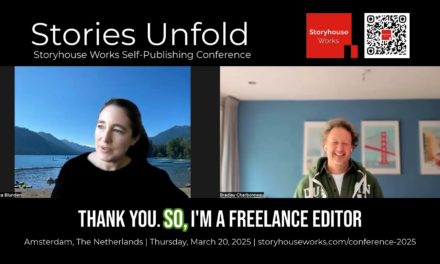
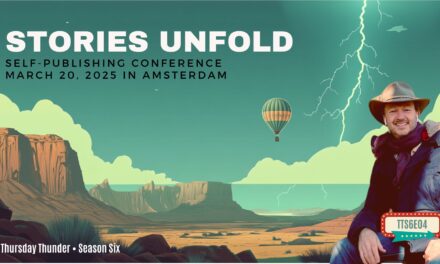
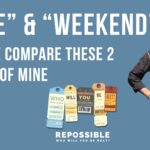

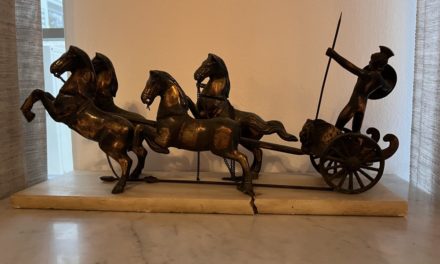
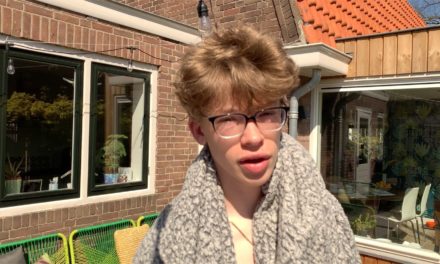
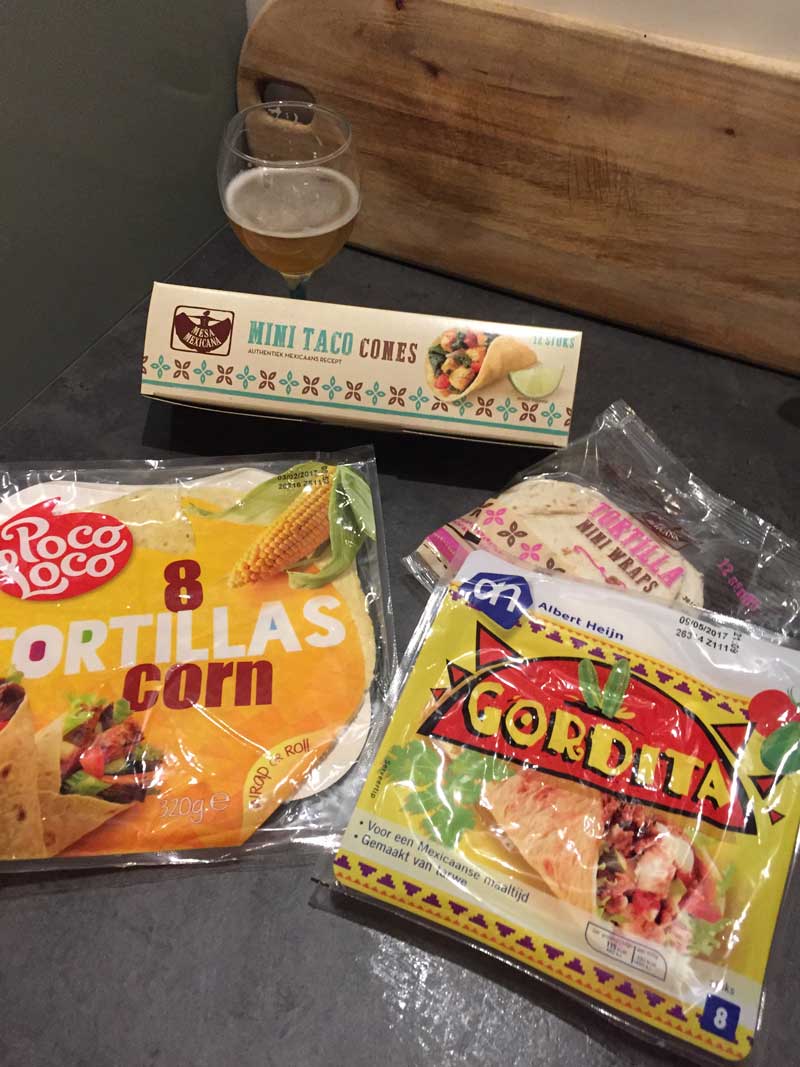


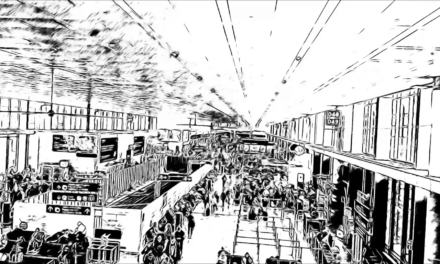
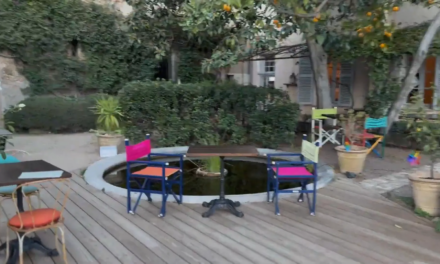












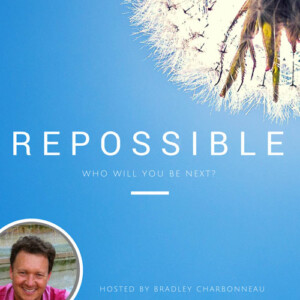




Trackbacks/Pingbacks